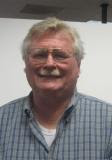Just before New Years, I was unexpectedly informed of the death of my mother's youngest brother and only living sibling, Arnold (Morris)
Groveman. Uncle Arnold played a very special role in my life. He was a friend, a surrogate father (mine died when I was just 14) and a hero to me. Arnold's place as my favorite uncle belied the fact that he may have been among the least
personally successful uncles, yet he had personal qualities and we shared a life story that made him especially dear to me. The photo above has been in my family all my life, on the walls of both my Mom and her late sister Lil's homes as well as my own. It is a historic photo of Uncle Arnold, face up, during the World War II landings in Salerno, Italy. This photo (which will blow up into full size if you click on it) can be found at:
http://education.eastmanhouse.org/discover/kits/imageNotes.php?id=10, with the caption:
"51. Unidentified U.S. Coast Guard photographer
UNDERNEATH DROPPING BOMBS
September, 1943
U.S. Coast Guardsmen and Navy beach battalion men are shown hugging the shaking beach at
Paestum, just north of Salerno, as a Nazi bomber unloads on them. In the background of the photograph — one of the most outstanding of the war — debris from a bomb hit can be seen in the air. Coast Guardsmen said this was much worse than the Sicilian and North African invasions, in which the Coast Guard also participated."
I remember being in a library looking
through WWII photo books and finding this photo in one of them. and saw it flashed
briefly in a PBS special series on WWII, but only now found a copy of it online.
The War was both Arnold's glory and his wound. He suffered some kind of shell shock in Italy and was hospitalized. I never noticed any direct effects, but he did manage to get a disability ruling later in life which helped him quite a bit financially and in terms of his medical treatment at VA hospitals. What I remember most, however, besides the photo above were others of Arnold in uniform--good looking, in a leather and fleece Army jacket--and with the German
Shepard he brought back to the States from Europe, a dog which sired Beauty, the dog with which I grew up in my early childhood that belonged to his brother, my Uncle Phil, and his family, with whom we lived in the same house in New York and with whom we spent a lot of time once they moved to California to live near us in the San Fernando Valley. A classic story in our family is how Phil's daughter, Nickie, my older cousin, "married" me and Beauty in an backyard ceremony in the Bronx in New York.
Like all of my Mom's siblings, Arnold survived not only the War, but a childhood of relative poverty as children of Eastern European immigrants and a mother left widowed when their father died in his early 30s of tuberculosis, and the Great Depression. As young children, they lived in bad housing and their mother traded in rags and remnants. They often lived off of the
largess of better off relatives. My Mom
remembers enjoying the chance to visit an aunt's
appetizing store so she could dip her finger in the pickle barrel and lick it. Access to food was always a theme in my own childhood, not unlike many Jewish families. My Mom would walk instead of taking the bus places so she would have a few pennies to go to the movies. She also sold paper bags she bought for 2 cents for 3 cents.She held a life-long grudge against Arnold, who would come to the movies looking for her and telling the owners
their mother wanted her, in order to sneak inside, but getting her sent home.
Before going to war, Uncle Arnold was a bit of a street punk and he always dressed that way, reminding me of John Travolta in he early roles in
Saturday Night Fever and
Grease. He had his bunch of street pals. My Mom said he used to spend his days as a kid playing marbles in the gutter and coming home smelling of the street. His street punk look, was also part of his vanity about how he looked. He also was a bit of a flirt, to the chagrin of his wife and daughter. During the Depression, Arnold and some of his friends went into the New
Deal's Civilian Conservation Corps (
CCC) and he spoke
nostalgically about his days clearing fire breaks in national forests and living in a camp environment. My Mom would say it and the War saved him from turning into a gang member.
After the War, Arnold did not get very good jobs. He tried his hand, with my father, as a plumber, worked distributing bathroom sanitizers to restaurants and later worked as a cutter New York's fashion district, probably his most solid job. His family lived in a fourth story, one bedroom walk up off of Bronx Park in a largely still Jewish section and later, as the Bronx changed, moved to Coop City, a huge project in the east Bronx where a lot of Jews moved during the 1970s.
My relationship with Arnold and his family, my Aunt Margaret and cousin Carol, was unique in that they were the only members of my Mom's family not to move out to Southern California in the 1950s. They remained in the Bronx due to my aunt's close ties to her parents, who were wonderful people. I was the only nephew or niece to return to New York and thereby establish a very close relationship with Arnold, Margaret and cousin Carol. When I returned to the States by student ship from a year abroad in Spain in 1966, it was Arnold and Carol who met me at the dock and took me home to a wonderful warm Jewish meal that Margaret had waiting for us at their home.
A year later, following graduation from UCLA, I went back to New York to study International Affairs at Columbia University. Arnold's family became my main family during very formative years. Though I lived at a campus dorm, I visited them often and Carol, already in college herself, often came to visit me at Columbia. I actually lived with them during the summer of 1969 after finishing up at Columbia and before going to Washington to begin a career in the State Department. In the late 1970s, my wife
Yeda and I returned to New York where I took up a position at the US Mission to the United Nations and we visited with the
Grovemans often at their Coop City apartment on weekends. A very reliable bus service connected Manhattan with the distant housing development.
What I can say about my relationship with Arnold is that he always remained very loving towards me and very interested in my life as a student and in my career. He was one of those people who would ask a million questions of a young person, seeming both really interested, but also living vicariously through a young person;s successes.
When Arnold and Margaret finally did move out to California in the 1980s after Margaret's parents had passed away, it was to move into
retirement along side my Mom and Phil in San Diego where they had moved from Los Angeles. My relationship with them there was just part of visits I would make, either from abroad or from Washington, DC, with
Yeda and our two children, Andrew and Dana, to San Diego with a side trip up the the San Fernando Valley where my Aunt Lil and her husband and my cousin Nickie and her family still lived and to Los Angeles where my brother Averill and his family lived. Those visits had a certain routine, which included visits to San Diego's Old Town, Balboa Park, the Zoo, Sea World, the Ocean front, lunch at the spectacular La Valencia Hotel. However, a certain amount of time with Arnold and Margaret, and of course good Jewish meal at their home were always required. I also always had a special relationship with Margaret, who is a delicate, Czech-born woman of great sensibility whom I also love immensely.
I rembember one experience with Arnold in New York when both he and my familty were visiting, he from California and we, if I am not mistaken, from Washington, DC. We used to stay at the Murray Hill East hotel where we could get a big one bedroom apartment and it was in the same neighborhood where Yeda and I had lived in Manhattan in the late 1970s. Arnold came and stayed over at our hotel and we all went down to Katz's Deli on Housten Street on the Lower East side for lunch. Arnold never stopped being a kid, and he had to order an enormous pastramii sandwich and two hot dogs which he ate with gusto to satisfy the cravings in his soul for something out of his past. (He had a similar fondness for Chinese food, and you could not get anywhere near his plate of shimp in lobster sauce once it hit the table. Of course, shimp was taboo in his own Kosher home.) Indeed, he lived pretty much in the past, the old neighborhood in the Bronx, his boyhood friends, the War. His stories were of great amusement to me, but some of his siblings found him to be a broken record on these subjects.
Arnold and Margaret stayed in San Diego after Carol, her husband Don decided to move back to New York--
Teaneck, New Jersey actually--seeking an Orthodox Jewish education for their four daughters. We saw Carol's family quite a bit during that period, as I had retired from the Foreign Service and moved to
Poughkeepsie in 1996, to take a job at the Roosevelt historic sites in Hyde Park, New York. However, Arnold and Margaret reached to point where living on their own was less feasible due to health issues and aging, Carol and her husband Don helped to move them to Toronto where they had moved in 2001.
Arnold was never happy in Toronto. He loved San Diego, a paradise which had been denied to him for years when he stayed in New York, and where he had finally found happiness. In his last couple of years, he complained a lot and spoke often of wanting to return to San Diego, which was not very feasible, due to his health problems. He never stopped calling me and trying to keep up with me and my family. Although I was sad for him, there was not much I could do and did not have the opportunity to visit his family in Toronto. When Carol moved back to New York, late last year with her parents, I was looking forward to visiting them, but Arnold's unexpected death deprived me of a last chance to see him. Arnold in his old age had become cranky and argumentative, did not feel well loved by his own immediate family, despite the fact that his granddaughters doted on him and Carol and Don did everything they could to meet his and Margaret's needs, and seemed to depend more on his calls to his nieces and nephews for affection. Nevertheless, I will always remember him fondly. It could not be otherwise.





.bmp)